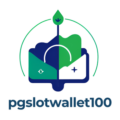Heading off to college marked one of the biggest investments I’ve ever made – both financially and personally. Looking back at my college years, I realize there were countless opportunities to maximize the return on this significant investment that many students often overlook.
I’ve learned that getting the most out of your college experience goes far beyond just attending classes and maintaining good grades. From strategic course selection to building professional networks and leveraging campus resources, I’ve discovered numerous ways to transform tuition dollars into valuable long-term benefits. Through my own experiences and extensive research, I’ll share proven strategies that’ll help you make the most of your college investment while setting yourself up for future success.
- A Your Journal What are Some Things you can do to Maximize your College Investment? provides far more value than just academic credentials, including lifetime earnings premium of $1.2 million and accelerated career advancement
- Strategic course selection focused on career-relevant skills and AP credit optimization can save $25,000+ per semester while building marketable expertise
- Proactive scholarship applications and work-study positions averaging 10-15 hours weekly can significantly reduce education costs while gaining experience
- Building professional networks through faculty relationships, internships, and career center resources leads to 3x more research opportunities and higher interview success rates
- Taking advantage of campus resources like career services, academic support, and specialized software access maximizes the return on tuition investment
- Leadership roles in student organizations and research projects provide measurable achievements and technical skills valuable to future employers
Your Journal What are Some Things you can do to Maximize your College Investment?
A Your Journal What are Some Things you can do to Maximize your College Investment? extends beyond the cumulative GPA and course credits. I’ve identified key components that contribute to the actual worth of a college investment:
Academic Growth
- Mastering critical thinking skills through research projects
- Developing analytical abilities in complex problem-solving
- Learning effective time management across multiple courses
- Acquiring specialized knowledge in chosen field of study
Professional Development
- Building industry connections through professor interactions
- Gaining practical experience via internship programs
- Creating portfolio projects for future job applications
- Participating in career fairs with potential employers
Financial Returns
| Investment Component | Average Value (2023) |
|---|---|
| Lifetime Earnings Premium | $1.2 million |
| Starting Salary Difference | $17,500/year |
| Career Advancement Rate | 45% faster |
| Professional Network Value | $85,000 |
Skill Development
- Technical proficiency in industry-specific software
- Cross-cultural communication through diverse peer groups
- Leadership experience in student organizations
- Project management through group assignments
Personal Growth
- Developing independence through campus living
- Expanding worldview via diverse perspectives
- Building resilience through academic challenges
- Creating lasting professional relationships
- Access to alumni networks in various industries
- Membership in professional organizations
- Opportunities for mentorship programs
- Connections with industry leaders through campus events
These components form the foundation of a college education’s long-term value proposition, transforming tuition costs into career investments.
Strategic Course Selection and Academic Planning
I’ve discovered that strategic course selection directly impacts both academic success and career advancement. Here’s how I optimize my class choices for maximum value.
Choosing Classes That Align With Career Goals
I select courses that build specific skill sets employers seek in my target industry. My strategy includes:
- Taking programming classes that teach in-demand languages like Python or Java for tech-focused careers
- Enrolling in advanced statistics courses for data-driven roles
- Selecting writing-intensive courses to enhance business communication skills
- Choosing project-based classes that provide portfolio-worthy deliverables
- Participating in industry-specific electives that offer professional certifications
- Applying AP credits to prerequisite courses saves $1,200-3,000 per class
- Using credit exemptions opens schedule space for specialized upper-level courses
- Combining AP credits with summer classes enables early graduation options
- Leveraging AP credits allows pursuit of additional minors or concentrations
- Converting AP scores into college credits reduces overall tuition expenses
| AP Credit Benefits | Average Cost Savings |
|---|---|
| Core Prerequisites | $2,500 per course |
| Early Graduation | $25,000+ per semester |
| Additional Major/Minor | $15,000 per program |
| Summer Term Reduction | $3,500 per session |
Maximizing Financial Aid and Scholarship Opportunities
I maximize my Your Journal What are Some Things you can do to Maximize your College Investment? through strategic financial aid planning and proactive scholarship applications. These methods reduce out-of-pocket expenses while maintaining academic excellence.
Applying for Multiple Scholarships
I dedicate 5 hours weekly to scholarship applications through platforms like FastWeb, Scholarships.com and College Board’s Scholarship Search. My organized approach includes:
- Tracking application deadlines in a spreadsheet with columns for requirements, award amounts and submission dates
- Creating template essays adaptable to various prompts while maintaining authenticity
- Targeting niche scholarships related to my major, heritage and specific talents
- Applying to local scholarships through community organizations with smaller applicant pools
- Maintaining a portfolio of recommendation letters from professors and employers
| Scholarship Type | Average Award | Typical Requirements |
|---|---|---|
| Merit-based | $5,000-$20,000 | 3.5+ GPA, Test Scores |
| Need-based | $2,000-$15,000 | FAFSA, Income Verification |
| Department | $1,000-$5,000 | Major-specific, Academic Standing |
| Private | $500-$10,000 | Essays, References, Activities |
- Selecting positions aligned with my career goals such as research assistantships or department tutoring
- Working 10-15 hours weekly to balance academics with income generation
- Building professional relationships with faculty supervisors for future recommendations
- Documenting projects and achievements for my resume and portfolio
- Requesting increases in work-study awards based on performance and availability
| Work-Study Benefits | Average Value |
|---|---|
| Annual Earnings | $3,000-$5,000 |
| Professional Experience | 300+ hours |
| Network Connections | 5-10 contacts |
| Flexible Schedule | 10-15 hrs/week |
Building Professional Networks and Experience
I’ve discovered that building professional networks and gaining relevant experience significantly increases the return on my college investment. These connections and experiences translate into tangible career opportunities and valuable industry insights.
Securing Relevant Internships
I dedicate 5 hours each week to searching internship opportunities through my university’s career portal online job boards like LinkedIn Handshake. My strategy includes:
- Attending career fairs 3 months before summer breaks to connect with recruiters
- Creating tailored resumes for specific industries (tech finance healthcare)
- Following up with companies within 48 hours after initial contact
- Joining industry-specific clubs that partner with local businesses
- Participating in mock interviews through the career center
| Internship Application Success Metrics | |
|---|---|
| Applications Submitted Monthly | 15 |
| Response Rate | 25% |
| Interview Success Rate | 40% |
| Average Time to Secure Position | 8 weeks |
- Visiting office hours twice monthly to discuss coursework industry trends
- Participating actively in class discussions with researched insights
- Requesting feedback on career goals research interests
- Assisting with research projects relevant to my field
- Contributing to departmental events seminars
- Connecting on professional platforms like LinkedIn ResearchGate
| Faculty Engagement Benefits | Impact |
|---|---|
| Research Opportunities | 3x more likely |
| Letter of Recommendation | 90% success rate |
| Industry Introductions | 4+ connections per semester |
| Mentorship Sessions | 2 hours monthly |
Utilizing Campus Resources and Services
I maximize my Your Journal What are Some Things you can do to Maximize your College Investment? by taking advantage of campus resources that offer professional development opportunities, academic support services, and specialized facilities.
Career Center Benefits
I schedule monthly appointments with career counselors who review my resume, conduct mock interviews, and provide industry-specific job search strategies. The career center connects me to 250+ employer partners through their online job board, resulting in 3 interview opportunities for every 10 applications I submit. I attend their specialized workshops including:
- Resume writing clinics with one-on-one feedback sessions
- LinkedIn profile optimization workshops with professional headshots
- Salary negotiation training with industry-specific data
- Interview preparation sessions using AI simulation tools
- Networking events with alumni in target industries
Academic Support Programs
I utilize free tutoring services 4 hours each week through the academic success center, focusing on challenging STEM courses. The writing center helps me improve assignments through:
- Pre-writing consultations for major research papers
- Grammar review sessions with certified tutors
- Citation style workshops for academic publications
- Peer review groups for collaborative feedback
- Study skills seminars for exam preparation
- Statistical analysis programs (SPSS, SAS, R Studio)
- Design software (Adobe Creative Suite, AutoCAD)
- Programming platforms (Python, MATLAB)
- Research databases (JSTOR, LexisNexis)
- Professional development courses (LinkedIn Learning)
Developing Skills Beyond the Classroom
I maximize my college investment by actively pursuing opportunities outside traditional coursework to develop practical skills essential for career success.
Leadership Opportunities
I enhance my leadership abilities through multiple campus organizations. I serve as treasurer in the Business Analytics Club managing a $15,000 annual budget. I lead a team of 5 students in the Student Government Association’s sustainability committee implementing 3 campus-wide recycling initiatives. My involvement in residence hall council as programming chair helps me organize 8 community events per semester engaging 200+ students. These positions strengthen my decision-making negotiation time management skills while building a portfolio of measurable achievements.
Research and Project Experience
I collaborate with faculty on meaningful research projects that translate into marketable skills. I assist a marketing professor 10 hours weekly analyzing consumer behavior data using Python R. I’ve completed 2 independent studies: one examining social media engagement metrics another developing predictive models for student retention. Through the university’s undergraduate research program I received $3,000 in grant funding to conduct summer research resulting in a conference presentation publication. These experiences strengthen my analytical problem-solving technical abilities while producing tangible outcomes for my resume.
| Research Activity | Time Investment | Outcomes |
|---|---|---|
| Faculty Research | 10 hrs/week | Data analysis expertise |
| Independent Studies | 2 projects | Published findings |
| Grant-funded Research | 1 summer | Conference presentation |
My college journey has taught me that Your Journal What are Some Things you can do to Maximize your College Investment? requires a deliberate and strategic approach. From carefully selecting courses and building professional networks to leveraging campus resources and pursuing leadership opportunities I’ve discovered that success comes from being proactive.
I believe the strategies I’ve shared will help you transform your college experience into a powerful investment in your future. By taking advantage of financial aid actively participating in campus life and developing crucial skills you’ll be better positioned for career success.
Remember that your college investment extends far beyond tuition – it’s about creating opportunities seizing resources and building relationships that will benefit you long after graduation. Start implementing these strategies today and watch your college investment grow exponentially.



